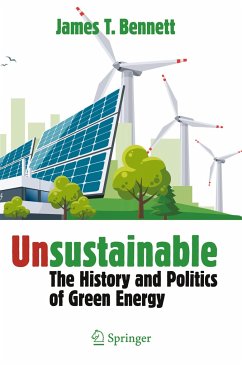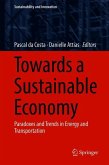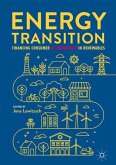This book examines the history, politics, and economics of alternative energy. Since the energy crisis of the 1970s, governments around the world have subsidized and otherwise incentivized alternative forms of energy to reduce dependence on fossil fuels. This search has taken on added urgency in the twenty-first century, as the specter of climate change has engendered ambitious state-level renewable portfolio standards, enhanced federal incentives, and inspired "100% renewable" electrical generation targets in such states as Vermont and Hawaii. To save the planet from destruction, wind, solar, and other renewable energy alternatives must replace fossil fuels. But how did we get here and what is the cost?
After an in-depth study of the Carter administration's synthetic fuels program, the focus shifts to the two most prominent, perhaps most promising, and certainly most promoted-and government subsidized-"green" and "renewable" energies today: wind and solar. Because wind has made the most headway and drawn the most controversy, it receives the most attention. Although the primary focus is on the American experience with renewable energy, the policies and politics of renewables in Scotland, Wales, Denmark, Spain, and other European nations are also discussed. Issues considered in the book include the nature and efficacy of renewable subsidies; the employment of federal and state tax codes to encourage renewables; the lobbies and interest groups that campaign for government support of renewables; and the fierce battles over the siting of renewable facilities. Unlike other works on this subject, the book probes in depth the nature of the opposition to wind and solar, both in the matter of siting and in their worthiness as recipients of substantial government assistance.
After an in-depth study of the Carter administration's synthetic fuels program, the focus shifts to the two most prominent, perhaps most promising, and certainly most promoted-and government subsidized-"green" and "renewable" energies today: wind and solar. Because wind has made the most headway and drawn the most controversy, it receives the most attention. Although the primary focus is on the American experience with renewable energy, the policies and politics of renewables in Scotland, Wales, Denmark, Spain, and other European nations are also discussed. Issues considered in the book include the nature and efficacy of renewable subsidies; the employment of federal and state tax codes to encourage renewables; the lobbies and interest groups that campaign for government support of renewables; and the fierce battles over the siting of renewable facilities. Unlike other works on this subject, the book probes in depth the nature of the opposition to wind and solar, both in the matter of siting and in their worthiness as recipients of substantial government assistance.








